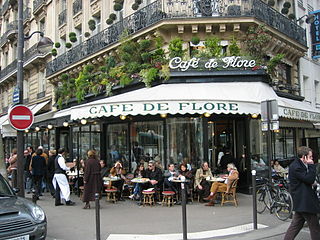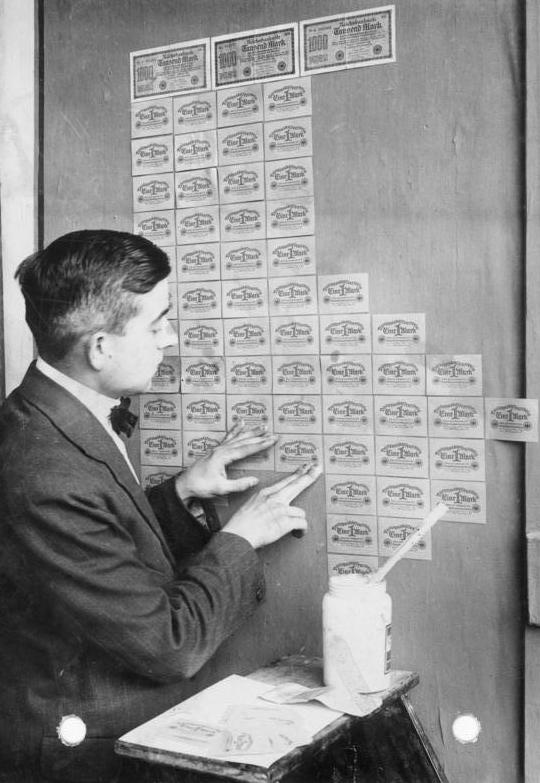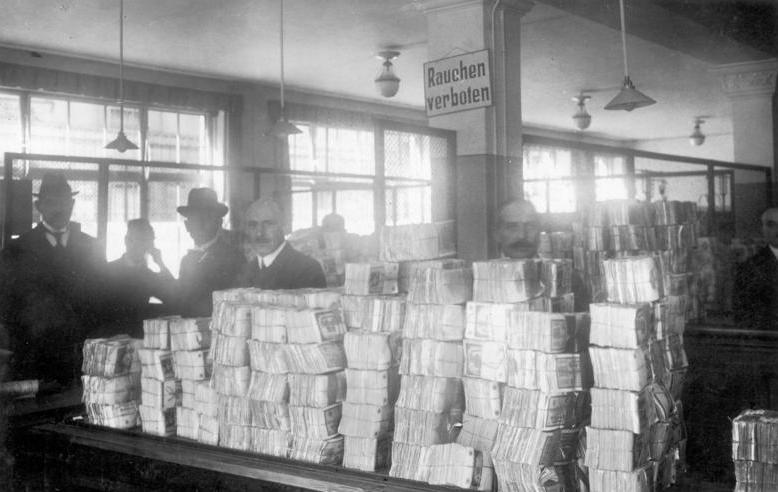I've long had the sense that we're living through the end of an era, and one thing that distinguishes one era from another is a difference in style, both in fashion and architecture. Style reflects in turn the general order of things. Open any history book, and we see pictures of people wearing clothing that pin point the era in which they lived. The same with architecture. Buildings look different.
I mentioned this to my brothers while on a family outing in Prague back in 2014. While they didn't share my sense of an oncoming storm, they agreed that fashion and architecture has remained fairly steady ever since the first world war. My architect brother pointed out some changes that have been enabled through computer modelling and new materials, but he agreed that the overall style of simplicity, void of ornamentation, has been a constant theme throughout this time period.
The same can be said about science, which is still dominated by ideas dating back to the early nineteen hundreds. Political economy is likewise dominated by ideas dating back to this time. Styles in art, music and culture can also be traced back to those years, so we're most definitely still in this era. But things are starting to fall apart. There are changes afoot, and we should prepare ourselves for a bumpy ride because the transition from one era to another has had a tendency to be dramatic.
The 18th century ended with revolution. Power passed from royalty to gentry. The 19th century ended in a world war, after which everyone got to vote regardless of gender or social standing. A similar change is likely to happen as we transition from the 20th to the 21st century, and it appears that the battle for control has already begun.
The virus scare we're currently living through has the general feel of a psyop. There's a constant repetition of a narrative meant to scare us into submission so that those in control will remain in control as we transition into the new era. There's also ample evidence that news is no longer news but scripted narrative. Only that which fits the narrative is allowed out of the local news context, and into global news. Furthermore, local news that doesn't fit the narrative is always presented as odd and unusual, and in no way representative for a general trend.
This has been fully illustrated by the way the latest cold spell in the Mid-West has been completely ignored outside the US, and simultaneously presented as if nothing like this is happening in other places. TV news in Portugal has not given the cold spell in Germany or the Mid-West any attention. Yesterday's headlines were limited to the announcement of a new royal baby in England, a locust plague in Kenya, snow in Moscow, and the latest numbers of Covid deaths and vaccines.
Immediately after the news, Bill Gates was given an hour to explain the need for a complete transform of society in response to Covid and climate change. Not only is this man eager to give everyone a shot and a Covid passport, he has plans to cool the planet, and he looks forward to having us all eat bugs instead of proper foods. Record breaking cold in Germany and the Mid-West wouldn't fit into this narrative, so it was no wonder that three million people freezing their socks off due to a lack of electricity and natural gas had to be tossed into the editorial waste bin.
Rolling black out and nobody caring if millions freeze or starve used to be the very definition of a third world country. Seen in that perspective, the Mid-West just made it into this category, but this is not going entirely unnoticed. The likes of Bill Gates and Joe Biden who stubbornly stick to the scripted narrative in face of overwhelming evidence that it's all a big lie, should be careful. There's definitely some resentment building against them and their arrogant dismissal of the plight of ordinary people.
The problem with scripted narratives is that God (aka nature) has a tendency to do things his own way. It's almost as if he has a will of his own. He comes up with all sorts of inconvenient truths just to poke fun of the script writers. How the climate refuses to play along with the script is evidence of this. There's also a lack of dead bodies related to the Covid virus, which is nothing like the plague that God sometimes tosses upon us, especially when we think ourselves better than him. It would not surprise me if God gave us a round of a truly horrific disease just to put the virus scare into perspective.
Pretending to be God has never worked out well in the past, and I'll be surprised if this latest attempt at controlling the narrative is going to work much better. I can already see the outline of some unintended idiocy coming our way. There's a hearing planned in Washington DC related to the Game Stop debacle that happened a few weeks back, and it would be particularly humorous if this were to coincide with an epic crash of the stock market due to the cold spell in the Mid-West.
There's a disaster waiting to happen due to bills that will have to be paid. A lot of people will be hard pressed to pay these bills, and will therefore have to sell something. While it's possible that this can be done without affecting the current speculative mania, it's more likely to be a wake up call. People will learn the hard way that speculative assets don't necessarily command a bid. Only that which is required as a commodity to produce real things, or generate an income through the production of such things, are assured a bid. Everything else can have bid disappear in an instance.
If enough speculators suddenly have to sell something that isn't required in real life, others can simply refuse to bid, and the price will collapse. Bitcoin can drop 90%. Tesla, which is now tied up to Bitcoin through Elon Musk's latest bit of financial trickery, can drop 70%, and the S&P 500 which is tied up to Tesla can drop 50%, all in the space of a few days.
A further effect of high energy bills will be a general increase in the price of all things necessary in life. Speculative assets will drop at the same time that life necessities go up. If this happens while people in Washington DC are discussing Game Stop, people will get more than a little frustrated. They will see these people as the clowns that they are. There will be more than just talk of secession. Communities will stop paying tribute up the ladder and start doing things their own way.
Some people think that such a series of events must necessarily lead to civil war, but history tells us otherwise. Rome had its civil war. But that was not how it ended. When Rome finally fell to the Goths, nothing much happened. Rome simply transformed itself over the following centuries into what was first referred to as Christendom, and is now known as the West.
This is the more likely path forward for the US, especially if we avoid a civil war. If everyone with influence to change things for the better in their community refrain from gloating over the misery of adversaries, there's a good chance that Washington DC ends up irrelevant in the same way that the city of Rome ended up irrelevant. What remains would be the idea that the US represents, namely the spirit of Liberty.
The US can in this way transform itself into a spiritual empire. The collapse of Washington DC will herald in an era similar to that outlined in the myth of the 5th Empire. There will be focus on community and liberty, and law will be derived from the golden rule. This would be a fantastic transformation, and it's within reach, provided we remain civil and level headed through the transition.
 |
| Café de Flore |















